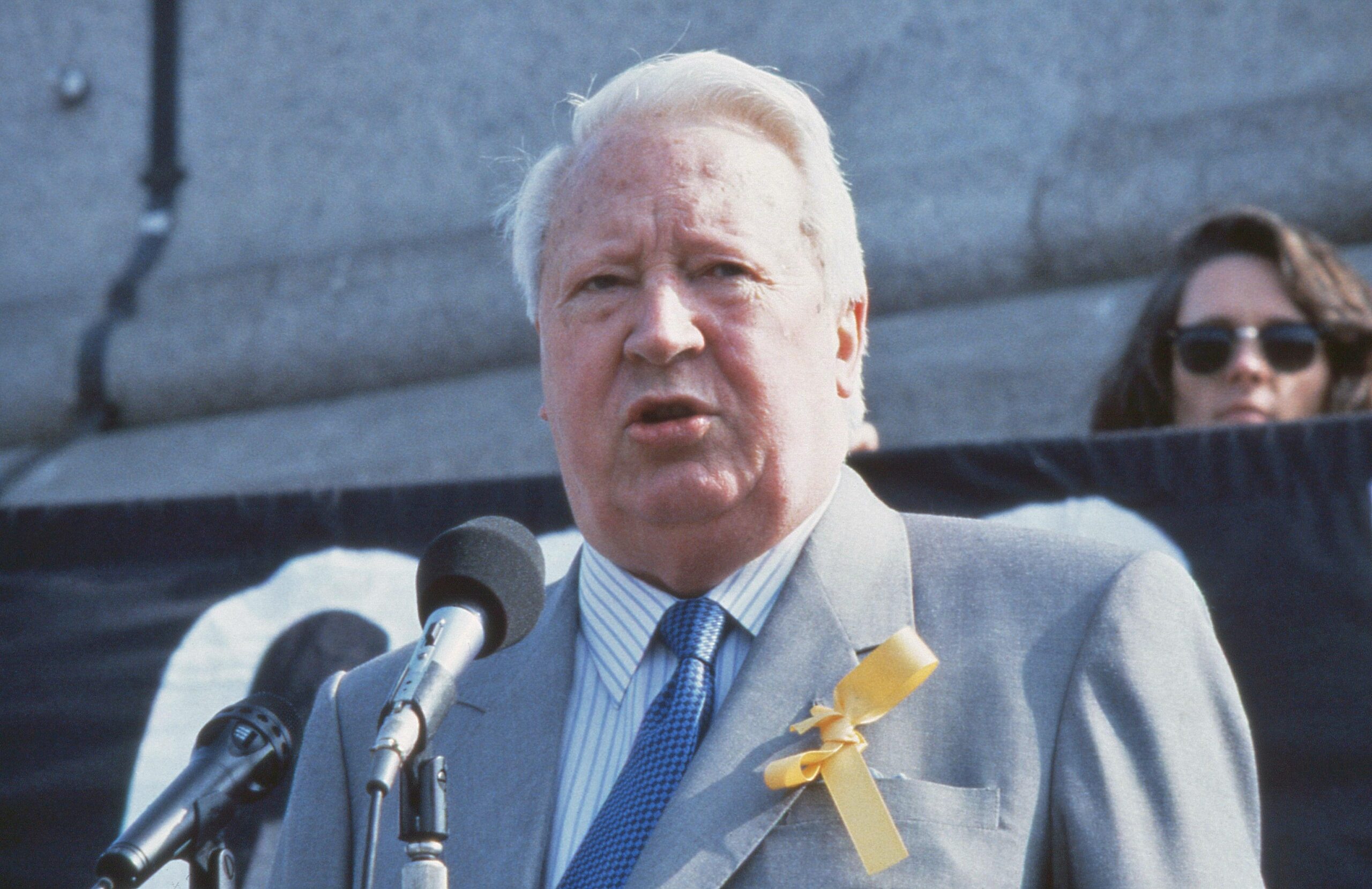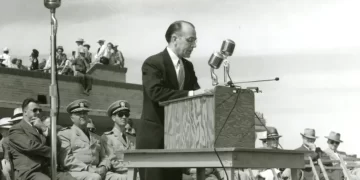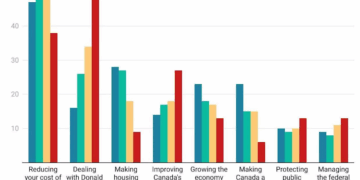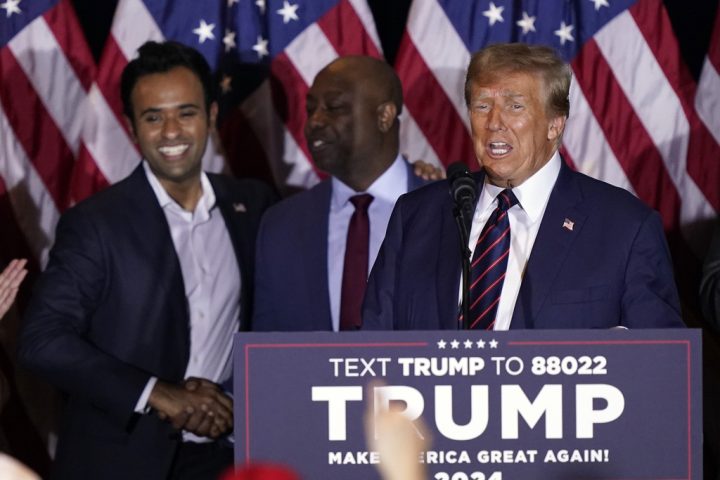The Fall of Ted Heath, Reconsidered
The Tory’s 1974 ouster would have befallen anyone in the same position.

Have I spent my whole life wrongly despising Ted Heath? I begin to fear so. Heath was the unlovable, awkward man who, 50 years ago, asked the voters of the United Kingdom the question “Who governs Britain” and received the answer “Not you!” Heath had been mocked for years before he came to office by the then-satirical London magazine Private Eye as “the Grocer.” They lampooned him as a cold fish, an awkward lower-middle-class misfit who spoke in an accent never previously heard in these islands and seemed to have little idea of what was going on around him.
They were not alone. In my long scramble across the fortified frontier between student Trotskyism and mature conservatism, I found that mockery of and dismissal of Mr. Heath were one of the few things common to both my former camp and my new one. On the far left, we had regarded him as an implacable thumper of trade unions and a free market fanatic. When I eventually reached Toryland, I found that he was viewed, with even more loathing, as a feeble middle-of-the-road wet, as Thatcherites tended to term those who did not in all respects follow the stern path of the Iron Lady. Worse, he had with set determination steered my country into the Common Market, the thing which would eventually become the European Union. Now that the Tory Party itself , after many years of Europeanism, has renounced it and all its works, this is more or less a crime. In person, on the two occasions I met him, he was grotesquely fat and consumed with a long-fermented sense of grievance that Mrs. Thatcher had supplanted him.
All these things are of course true in their way, and quite unattractive. But I am not here to argue about the correctness of Heath’s politics at any time. And, in fact, I can see how annoying it must have been to have been pushed aside by Mrs. Thatcher, and relegated ever afterwards to the shadows. On the European issue I think the whole British elite (with far too few exceptions) were gravely wrong in thinking that the European project was the solution to Britain’s decline. Mrs. Thatcher was one of them, and campaigned vigorously for Britain to stay in the Market in the 1975 Referendum. They were still preoccupied with British power and influence. They should have aimed instead at liberty, prosperity and independence.
Heath was unlucky rather than foolish with his timing and with his opponents. For instance, when he challenged the National Union of Mineworkers, then a mighty shock brigade of union power, it was led by the cunning, unpolitical Joe Gormley. Gormley was one of the most astonishing people I have ever met, small (height was not an advantage down in the coal seams) but tightly packed with muscle and personal force, and radiating the power he knew he then had. He almost glowed with it. Margaret Thatcher would have had much more trouble beating him than she had defeating his successor, Arthur Scargill, a noisy, eloquent, rather rangy person who actually managed to call his coal strike in the spring, a little like an ice-cream workers’ strike in January. Gormley’s strike, the one that brought Heath down, began at the onset of winter.
Likewise, Mrs. Thatcher was lucky with the Falklands War, the event that, bizarrely, established her as invincible. For if the Argentinian state had waited a few more months before invading those South Atlantic Islands, Mrs. Thatcher would have sold off or irrevocably scrapped several of the warships which were crucial in retaking Britain’s lost territory in what was a very close-run struggle. If the Royal Navy had not saved her, she would have been gone from Downing Street and public life forever after only three years in office.
I remember the moment Ted Heath won his election, a lovely, warm, soft night in 1970. I (then being one of the 18-year-olds newly allowed to vote) was in the small crowd who watched the declaration of the result in the Oxford constituency, in the small hours of June 19. We were amazed. Everybody on both sides had thought the Tories would lose, yet they had not. Our local Conservative, to add spice to the occasion, was Christopher “Monty” Woodhouse. I did not then know he had been a senior operative of the Secret Intelligence Service (MI6). He had helped the CIA’s Kermit Roosevelt to overthrow Iran’s legitimate government in 1953 in an especially nasty and cynical putsch. If I had known, I should have shouted my protests even louder.
But there it was. Heath was in. The opinion polls had all been wrong. We thought, mistakenly, that the fabled sixties—in many ways a pleasant time of full employment and reasonably high incomes—were now officially over. They would in fact struggle along until the Yom Kippur War of October 1973, and it was the economic consequences of that conflict, inflation especially, which did for Ted Heath. At that time, both his Labour opponent, Harold Wilson, and his future successor, Margaret Thatcher, would have done the things he did—joining the European Union, the destruction of proper state secondary schools, the confrontations with labor unions. All would also have been unhorsed, as he was, by the oil crisis that followed the Arab-Israeli war. So perhaps it is time to look at him calmly as a man.
And when you do that, you find someone rather remarkable, not only a politician of some skill and achievement (for who values that?), but a serious musician, a brave and fiercely competitive yachtsman—two things I rather wish I had been—a man from a very ordinary childhood. He was also a man of faith. A serious clergyman of my acquaintance, who knew him towards the end of his life, credits him with a quiet but strong Christian belief. Heath’s father was a carpenter and builder. His little-known brother bumped along through life without any special distinction. His family were not poor, but they had pretty slender means. His parents never took vacations themselves, but made sure their two sons did so, and paid for the piano that Ted Heath needed for his music studies. And in a country still powerfully snobbish (this may explain the failed attempt at a patrician accent) Ted Heath climbed by his own hard work into Oxford’s most demanding college, Balliol. There he was able to match himself in debate, at the Oxford Union, against political giants of his time. He did not sparkle, but he still tended to win.
He was an intrepid traveler who managed to visit both Hitler’s Germany and Roosevelt’s USA before the Second World War, once literally brushing shoulders with Hitler at a Nuremberg Rally. His car was machine-gunned during a visit to Republican Spain. When the conflict came, he enlisted and served honorably and bravely for some years in the Royal Artillery, ending the war as a major. Those who knew him in private dismissed claims by his enemies that he was a “cold fish.” Perhaps, in an age almost obsessed by sex, he was unlucky to be one of those men who are not really very interested in that aspect of life. Fifty years before, nobody would have cared. In the 1960s and 1970s, he was beset by the usual rumors which surround such people and (after he was dead) was actually investigated by the police (at a cost of almost $2 million) on wild, uncorroborated charges of child abuse.
The story about him which always left me most moved was that, as his mother was dying of cancer, he broke off from his political life each evening and returned to the small family home at Broadstairs. There he would sit for hours at the piano, beneath the room where his mother lay, playing her favorite tunes, especially “That Old Sweet Song.” I simply do not have it in me to dislike anyone who did that.
The post The Fall of Ted Heath, Reconsidered appeared first on The American Conservative.

































 Reaction & Commentary
Reaction & Commentary















